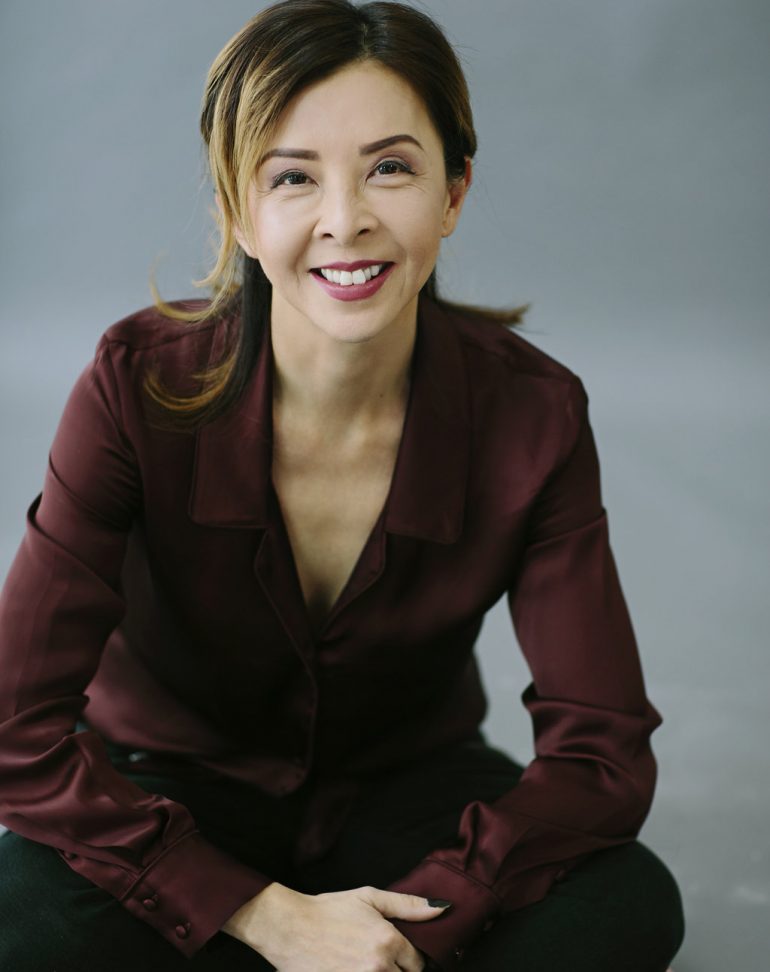Behind every brand delivering simpler experiences for customers is a leader who recognizes the inherent value in keeping things simple. In Simplifiers, Margaret Molloy interviews business leaders who put simplicity to work. Here, Margaret speaks with Lucy Chow, Director, Women’s Angel Investor Network and Investment Committee, Mindshift Capital.
The Women’s Angel Investor Network (WAIN) was established in 2014 in the Middle East. Led by women and financed by women angels, WAIN invests in companies with at least one female founder or co-founder. WAIN also provides training in due diligence and investment strategy as part of its goal of building a strong network of knowledgeable women investors.
MM: What is the Women’s Angel Investor Network (WAIN)?
LC: We are the first investor network for women in the Middle East and North Africa. We established WAIN to create an ecosystem of women investors, to support women entrepreneurs. Since 2014, WAIN has screened over 400 women-led companies and made nine investments in eight companies from MENA and the United States.
MM: And what does WAIN stand for?
LC: We are providing both women investors and founders opportunities to be an integral part of the innovation ecosystem. Within that system, there’s a chance for them to have real economic and intellectual growth.
MM: How do you deliver on that promise every day?
LC: WAIN provides training in due diligence and investment strategy as part of its goal of building a strong network of knowledgeable women investors. As the smart money investors, we not only give capital but we open doors—we help develop markets; we mentor; we sit on boards and we advise.
MM: What role does simplicity play on that promise?
LC: What we are trying to do is to simply move private capital to startups that have the best chance of succeeding. Along the way, if we’ve done our due diligence, then we’re helping the investors grow their money and the startups grow their business.
MM: What benefits has WAIN experienced from simplifying?
LC: Like many angel groups, we use a tech platform to screen companies that apply. Additionally, we have structured our organization, so there is a layer of directors that review the initial applications, followed by a collaboration stage whereby the angels can evaluate the screening. From there, we determine which companies we shortlist. The benefits of simplifying include the fact that angels are presented with higher quality startups to invest in and of course, there’s the time-saving.
MM: As a leader, how do you keep things “simple” for your team?
LC: It’s essential to be respectful of everyone’s time while still being focused on our mission. Like many organizations today, we wouldn’t function without the use of technology; we use tools like Dropbox and Slack to exchange information quickly and efficiently. We also try to automate as many of our processes as possible.
MM: Personally speaking, what’s the most recent simple customer experience that inspired or impressed you?
LC: Recently, we decided as a family to move to a new home. I worked with a leasing agent, formerly with Savills, who was all about efficiency and respecting my time. I was able to describe what we were looking for and instead of me having to be proactive, the agent followed up with different listings, simplifying the process so we could weed out options and quickly create a viewing schedule.
MM: What are some of the biggest mistakes that brands make with regards to simplifying?
LC: Today, there are so many different ways to reach a customer. In the retail space, for example, companies run the risk of lumping everyone into the same bucket. Instagram could be an excellent channel for building brand awareness for a fashion brand, but the brand might overlook an entire demographic if they don’t explore alternative ways of interacting with various customer segments.
MM: Any recent examples of a difficult decision that you made at WAIN, that you had to make for the sake of simplicity?
LC: When we first formed WAIN, we wanted to be very democratic: every angel had a legal vote in our structure. However, after we completed our first cycle, we realized that it wasn’t the best model. We could still be collaborative, but we didn’t need to give everyone a vote, so we amended our structure in the second round to where we have three directors—and the buck stops with them.
MM: What does “simplicity” mean to you?
LC: The Japanese concept of “ikigai” comes to mind, which means “a reason for being.” I just finished a book where the authors traveled to blue zones—regions of the world where people live much longer than average. The authors looked at the citizens of Hokkaido to determine why the island has such a high number of centurions. They discovered the daily lives of the island’s population were very simple—they wake up, they garden, reflect and bond with their community.
For me, simplicity is about enjoying the small things in life, connecting with friends and family, listening to the birds chirping—and being aware of the birds chirping.
MM: What advice would you give other brands trying to simplify?
LC: Test, test, test. Socialize anything new amongst your key stakeholders. Please don’t assume that your customers’ thinking and how they consume will be the same as your last interaction.
MM: Thank you, Lucy.
Know a Simplifier or would like to be included in the series? Please recommend an executive for my next interview: [email protected]
Margaret Molloy is Global CMO and Head of Business Development at Siegel+Gale. Follow her on Twitter: @MargaretMolloy


